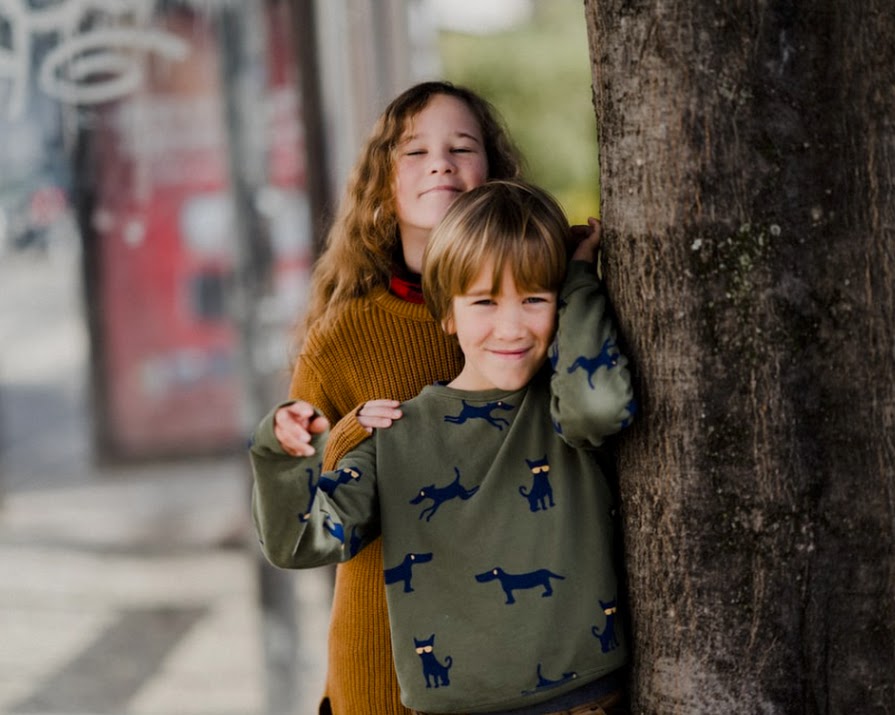
Failure has become a dirty word in the world of parenting. But lessons on dusting yourself off and moving forward are essential for our children’s wellbeing, writes Amanda Cassidy
How do you measure success? In financial terms? A measure of the amount of love in your life? How happy you are?
Whether we know it or not, many of us have been conditioned to believe that our life’s goals are tied up with work and money. College places and mortgages. And it is affecting our children’s mental health.
One thing that has fallen off the radar of modern parents is providing genuine tasks that give our children the opportunity to fail. Without this, they cannot learn coping strategies to deal with emotions, to figure out where they went wrong, to adapt their approach.
In fact, our obsession with sidestepping failure is beginning to negate the importance of progressing child development. There are high expectations for children and a new type of pressure to perform in order to have a better future. But psychologists now believe that instead of telling children to work towards something for when you are older, we should be telling them to live and enjoy the now.
Anxiety
As Science Director at The Center for Compassion and Altruism Research in the US, Emma Seppala, puts it: “When our minds wander, we often start to brood over the past or worry about the future — thereby leading to negative emotions like anger, regret and stress.
A mind that is constantly trying to focus upon the future — from getting good results to applying to colleges — will be prone to greater anxiety and fear. While a little bit of stress can serve as a motivator, long-term chronic stress impairs our health as well as our intellectual faculties, such as attention and memory. As a consequence, focusing too hard on the future can actually impair our performance”.
“Now is the time for them to experience these little fails, the ones that won’t knock them sideways”
In other words, living in the present promotes creativity, well-being and curbs anxiety in children.
My daughter is afraid to fail. Her innate sense of competition is with herself. She is sometimes so afraid she might not succeed that it prevents her from taking part.
Is not coming first a failure? Perhaps to her. But life is a series of ups and downs, things that go well and things that don’t, luck and chance and hard work all reward, but even that gets complicated when fate steps in.
So I’m teaching my children how to fail well. How to pick themselves up, brush themselves off and continue. Now is the time for them to experience these little fails, the ones that won’t knock them sideways. I’m very aware that as we get older, we fall harder.
Learned helplessness
Bulldozer parents or so-called helicopter parents are those that clear every obstacle or who hover incessantly around their perfectly capable children, trouble-shooting their problems away. As noble an action as that may be, it also means they will never experience what it means to cope with adversity.
This learned helplessness works both ways.
The pressure for parents to “be involved” can also lead to stress and guilt for time-strapped parents. The competitive nature of modern parenting means that we are living in a pressure-cooker environment that is causing problems unnecessarily.
Nana korobi ya oki is a Japanese proverb which means “if you fall down seven times you get up eight”. Born out of the concept of good old-fashioned resilience, this ethic is reinforced across Japanese culture, education, business and sports.
It reminds us that there are no quick fixes in life, something the modern parent cohort may have forgotten. In a world of instant gratification, it pays to start teaching our children that success (in whatever form that means to you) doesn’t have to be quick.
What is more important that one does their best and remains persistent. The statistics back this up.
Perspective
A 2016 study by Stanford’s Kayla Haimovitz underlined how a parent’s attitude to success and failure with their child has a huge impact on their self-esteem. “For example, if parents think that failure is shameful, their children are more likely to be derailed by mistakes.
But it’s subtle, explains Dr. Haimovitz. “Your child may be struggling with their times tables, and you may say something like, “not everyone needs to be good at numbers,” as a way to comfort them. But what you’re really doing is implying that their maths abilities are already set, and unchangeable.”
Her co-author Carol Dweck adds: “If a person has a ‘fixed mindset’, they believe their talent is fixed and so they spend their energy reinforcing this fixed opinion of their innate ability. But a person with a ‘growth mindset’ is more concerned with developing whatever innate talent they have and so they are ready and willing to heed the lessons that failure brings.”
“The lesson is that we can make mistakes and still be ok”
The fear of failure can immobilise. I’ve seen it in my daughter. “It’s not the end of the world,” I explain to her. “It isn’t a reflection on your inadequacy, it is an incredible learning experience. These are the lessons that help us to grow.”
30 mistakes
Experts suggest starting by setting a few small goals designed to boost confidence. Emphasise effort over the outcome and be sure to reassure them that they are loved unconditionally. When they fall or fail at something in life, talk about the importance of not giving up, find the lesson, move forward, discuss what they might do differently next time. Use the opportunity to teach them about what just happened.
The best lesson, explains psychologist Harry Newman, is that failing isn’t the worst thing in the world. “I sometimes say to my young patients, everyone has 30 mistakes in life. They always ask, what happens when we use them up? We get 30 more, I say. And that, in a nutshell, is the lesson; we can make mistakes and still be ok.”
“Only those who dare to fail can ever achieve greatly”
As our children grow older and more independent, the world can feel like a scary place. It is our responsibility to teach children the skills they need to be more resilient in the face of stressful events.
We need to give them these tools early in life. ‘Failure’ for now, might be coming last in the egg and spoon race on sports day. In the future it might be being made redundant or having your heart broken into pieces.
Robert F Kennedy said, “Only those who dare to fail can ever achieve greatly.” Practising little failures on the baby slopes of life now will help them soar self-sufficiently in the real world in the future.
Image via Unsplash.com
Read more: The only parenting book that has ever worked for me
Read more: How to raise happy confident kids






















